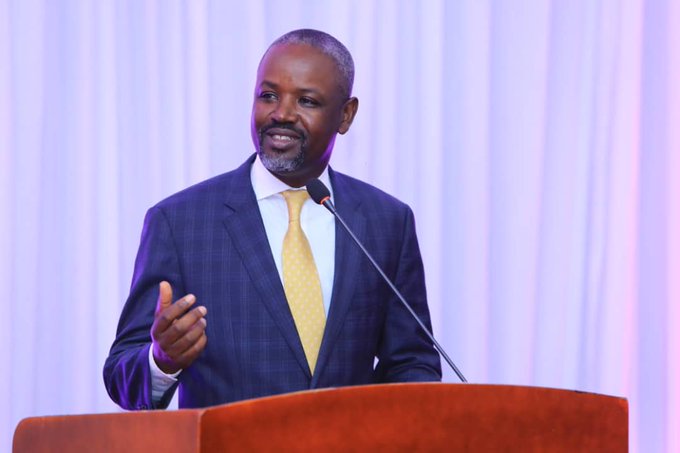Deputy Speaker Tayebwa Urges German Legislators to Boost Coffee Imports, Tourism Investment

Deputy Speaker Thomas Tayebwa has urged visiting German legislators to advocate for increased European Union imports of Ugandan coffee.
Tayebwa emphasized the need for the EU, particularly Germany, to invest in value addition for Ugandan coffee. He pointed out that while Africa is a major coffee producer, the continent earns minimal revenue from this cash crop.
During a meeting on Thursday, 23 May 2024, at the Parliament, Tayebwa and several MPs engaged with lawmakers from Germany, represented by the East African Friendship Germany Parliamentary Group. Tayebwa highlighted the disparity in earnings from global coffee exports, noting that while global exports amount to US$460 billion, Africa earns only US$2.5 billion, and Uganda just US$870 million.
“As a continent, we are concerned with value addition in coffee. Non-producing countries earn much more than those producing it. We want to collaborate to enhance value addition,” Tayebwa stated.
He also encouraged the German visitors to support Uganda’s tourism sector, emphasizing the country’s unique attractions and improved travel connectivity through direct flights. Tayebwa noted, “We would like to see more German tourists in Uganda. Our tourism sites are unparalleled. Sixty percent of the world’s mountain gorillas are in Uganda. We have high security and welcoming people, making Uganda a prime destination.”
Tayebwa was pleased to report the growth in Uganda’s exports to Germany, which have increased by 3.74 percent, from US$45.7 million in 1995 to US$123 million in 2023.
He highlighted Uganda’s recent trade surplus with the European Union and expressed appreciation for Germany’s support in cultural promotion, refugee hosting, and scholarships.
Ora County MP and Chairperson of the Committee on Climate Change, Lawrence Songa, urged German lawmakers to advocate for investment in solar panel manufacturing in Uganda. Songa argued that Uganda has the necessary minerals and workforce, and local production would reduce emissions and create jobs. “Many solar panels in Uganda are from Germany. Manufacturing them locally would cut emissions and provide employment,” Songa said.
Dicksons Kateshumbwa (NRM, Sheema Municipality) called for increased German support for Uganda’s Small and Medium Enterprises (SMEs). He noted that Uganda could learn from Germany, where SMEs make up the majority of businesses. “Our SMEs face funding challenges, struggling to access affordable and patient capital, which undermines policy advantages for SMEs,” Kateshumbwa explained.
Head of the German delegation, Hon. Kordula Schulz-Asche, acknowledged the importance of SMEs and technical education to Germany’s economy. She inquired about Uganda’s governmental support for SMEs and assured the Ugandan lawmakers of Germany’s commitment to dialogue with partner countries, including Uganda. “Ninety-eight percent of German companies are SMEs, which are crucial to our economy,” Schulz-Asche remarked.


Comments are closed.